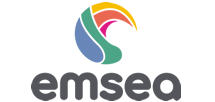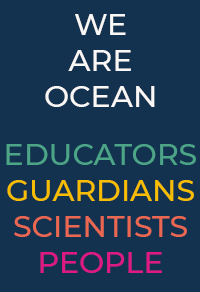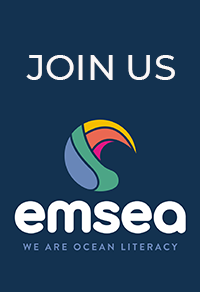Diogo Geraldes: Bringing ocean literacy to both toddlers and IT consultants at the Oceanário de Lisboa
This article is part of the blog series ‘Meet the members’ in which you’ll get to know the EMSEA members, what drives them and what inspires them. They’ll share their experience, their good practices, their challenges. They’ll talk about what ocean literacy means to them and how they hope to reach it. Today we meet Diogo Geraldes, manager of education, guest engagement and experience at Oceanário de Lisboa.
With a background in molecular biology and genetics and a Masters in biotechnology, it was rather a coincidence that Diogo ended up in marine science. However, he’s been at the Oceanário de Lisboa for seven years now and couldn’t imagine being anywhere else. From two-year old toddlers to huge IT corporates, he’s on a mission to convert the whole world to ocean literacy.
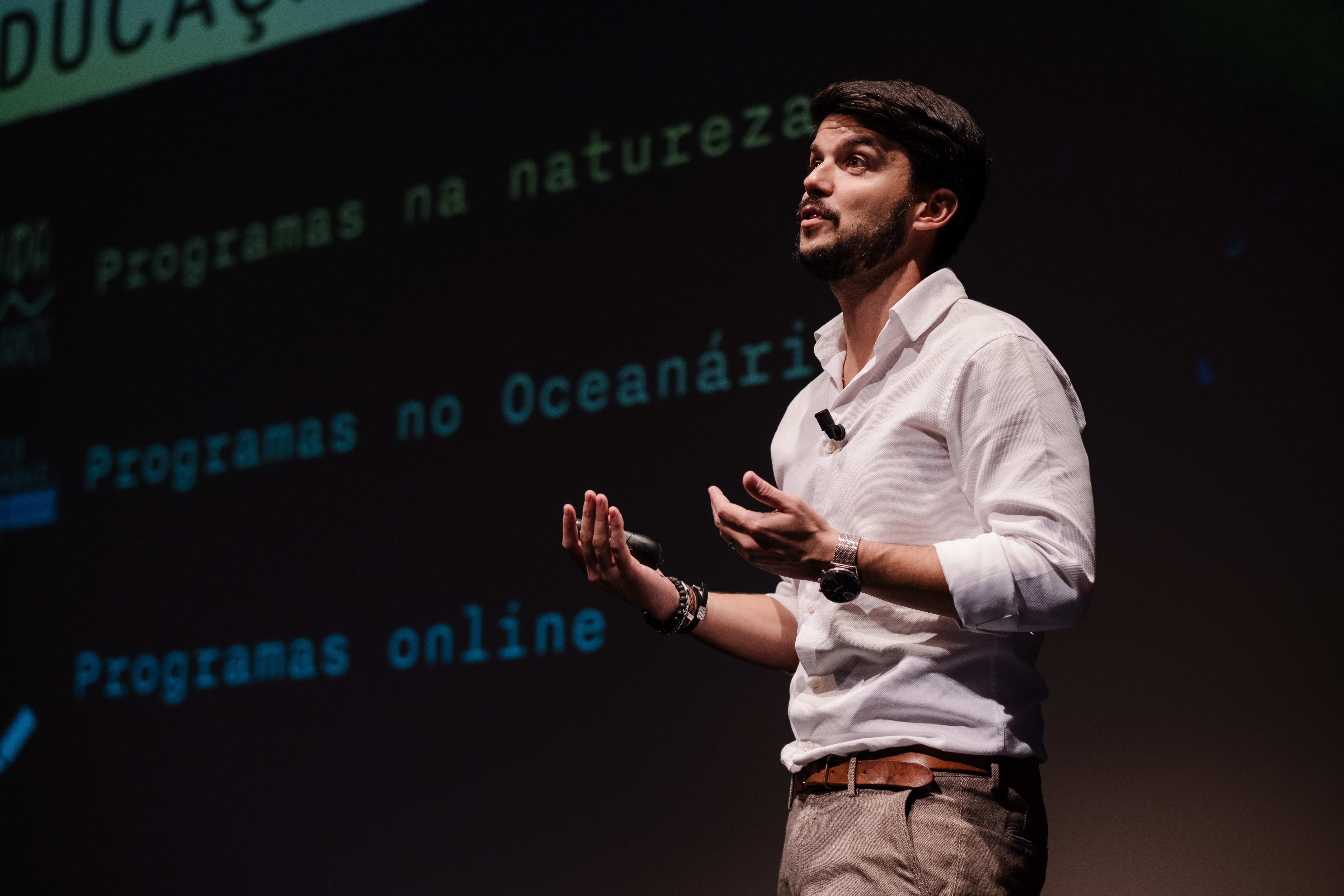
The Oceanário in Lisbon opened in 1998. It wanted to showcase the ocean as a global connection between all people. Today they host over one million people each year, whom they educate about marine life. Apart from education, the Oceanário is involved in research and conservation as well.
‘If we talk about sustainability, everyone talks about climate. But no one sees that connection between ocean and climate. No one sees the bigger picture,’ says Diogo. Having over 90.000 people involved in educational programmes last year, the Oceanário can make a huge impact. ‘When people start to understand that everything is connected, it might trigger change. Knowledge is a tool to mobilise people and change their behaviour,’ he adds.
However, they can’t do that alone. Diogo emphasises the need for cooperation with other institutions and projects. ‘Sometimes, we have children coming over to visit us for 90 minutes. At that moment we’re a spark of inspiration, we’re a trigger. We connect them emotionally to the ocean. But after that, you need to keep that spark alive,’ Diogo explains. Therefore, projects such as Educating a Blue Generation (from Oceano Azul Foundation) and the cooperation with e.g. the Blue Schools network are essential. With over hundred institutions in Portugal working on ocean literacy, Diogo feels lucky. ‘It’s really only by working together, we can achieve true change’.
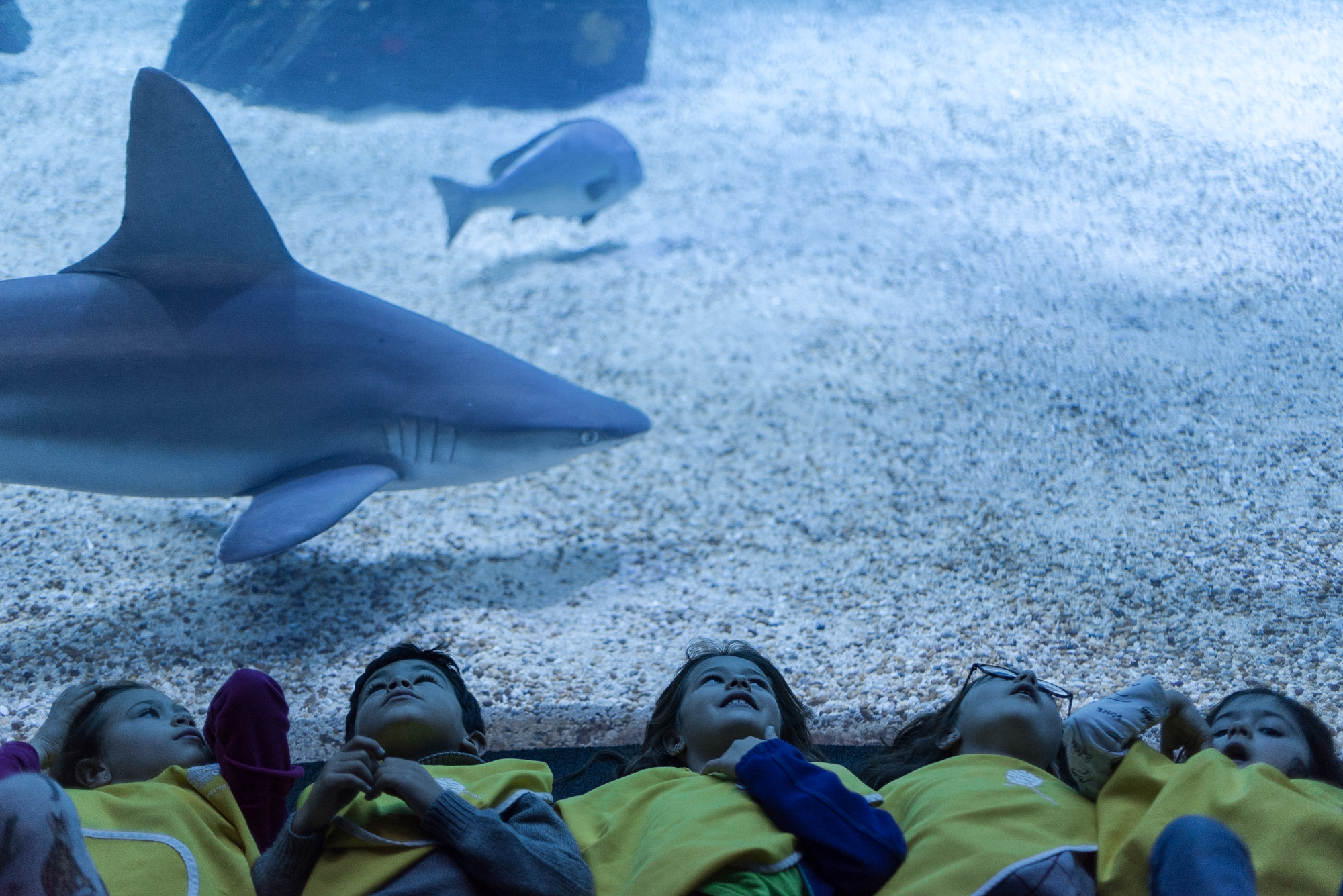
School Programmes and Teacher Training
So how do they ignite that initial spark? The Oceanário has several projects, Diogo explains. First, there are the school programmes, in which they offer 25 different pathways to students from kindergarten to university. In these programmes different subjects are covered, such as biology, Portuguese literature, mathematics, engineering or history. The students can come to the Oceanário, but there are programmes at the schools as well.
Apart from targeting the students directly, the Oceanário also offers teachers trainings on Blue Economy, marine litter or climate change. The goal is to share knowledge, but also to inspire the teachers to be creative in linking ocean subjects to the school curriculum. Waves and shells can be used when teaching about the Fibonacci sequence or seagrass to explain photosynthesis.
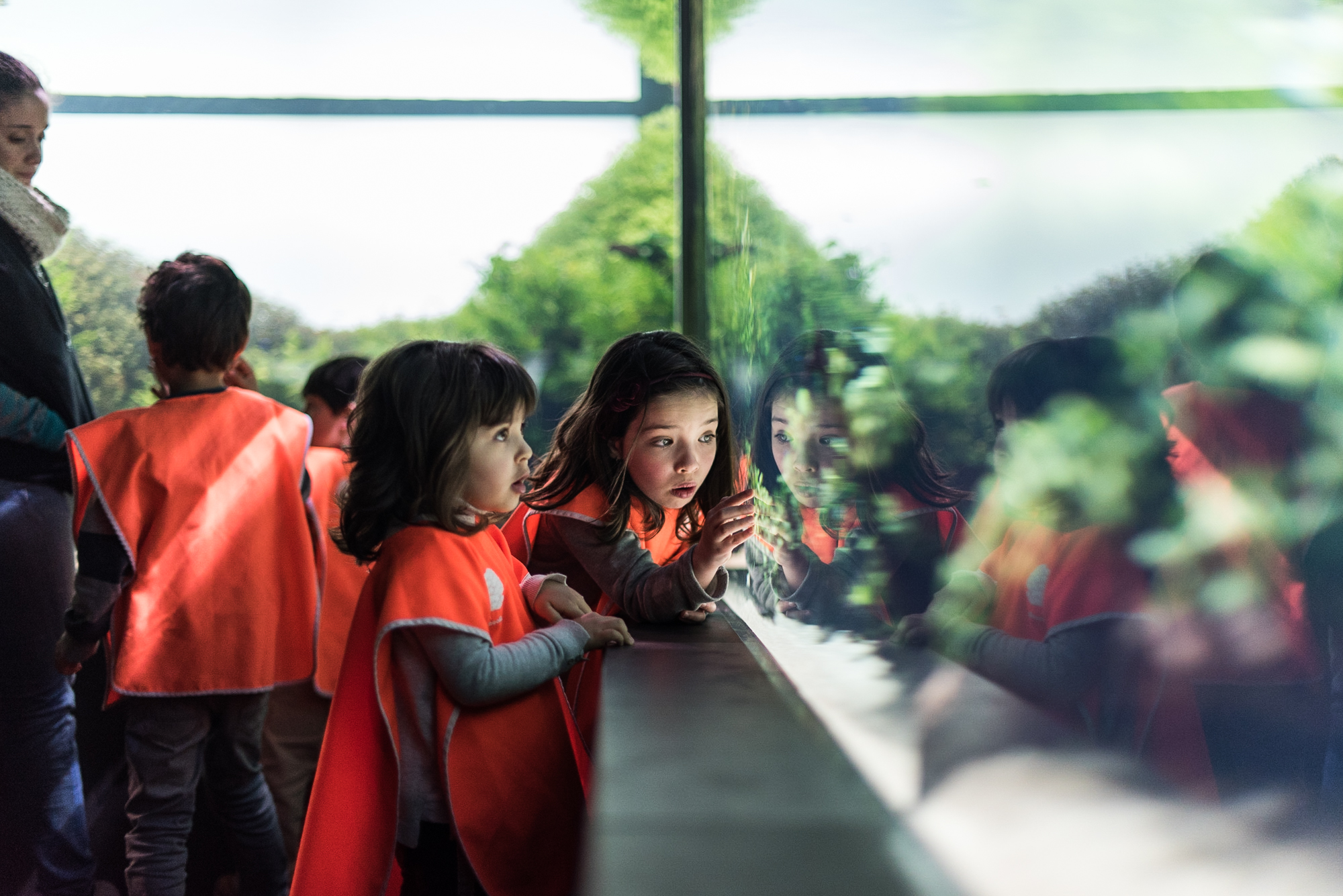
Family events
Second, the Oceanário offers many different family events: concerts for babies, birthday parties or the very cute A Little Whale programme in which the Oceanário recreates the story of the so-called book by Benji Davies. In the book, a boy finds a whale at the beach and brings him home to put him in the tub. The Oceanário transformed the story to a guided tour through the aquarium, in which the children take a big, fluffy whale along to meet his other friends and put him in the bath tub. The birthday parties rely on the same principle. In Penguin Operation the children hear about the theft of a penguin and they need to solve the mystery by finding clues all over the aquarium. In Sea Party the birthday cake has gone missing and the children need to look for the different ingredients. Walking around at the aquarium they learn about the feeding habits of the different animals. You can also spend the night sleeping at the aquarium, watching the sharks and rays swim above you. Scrolling through the Oceanário family programmes, one would wish to be a kid again.
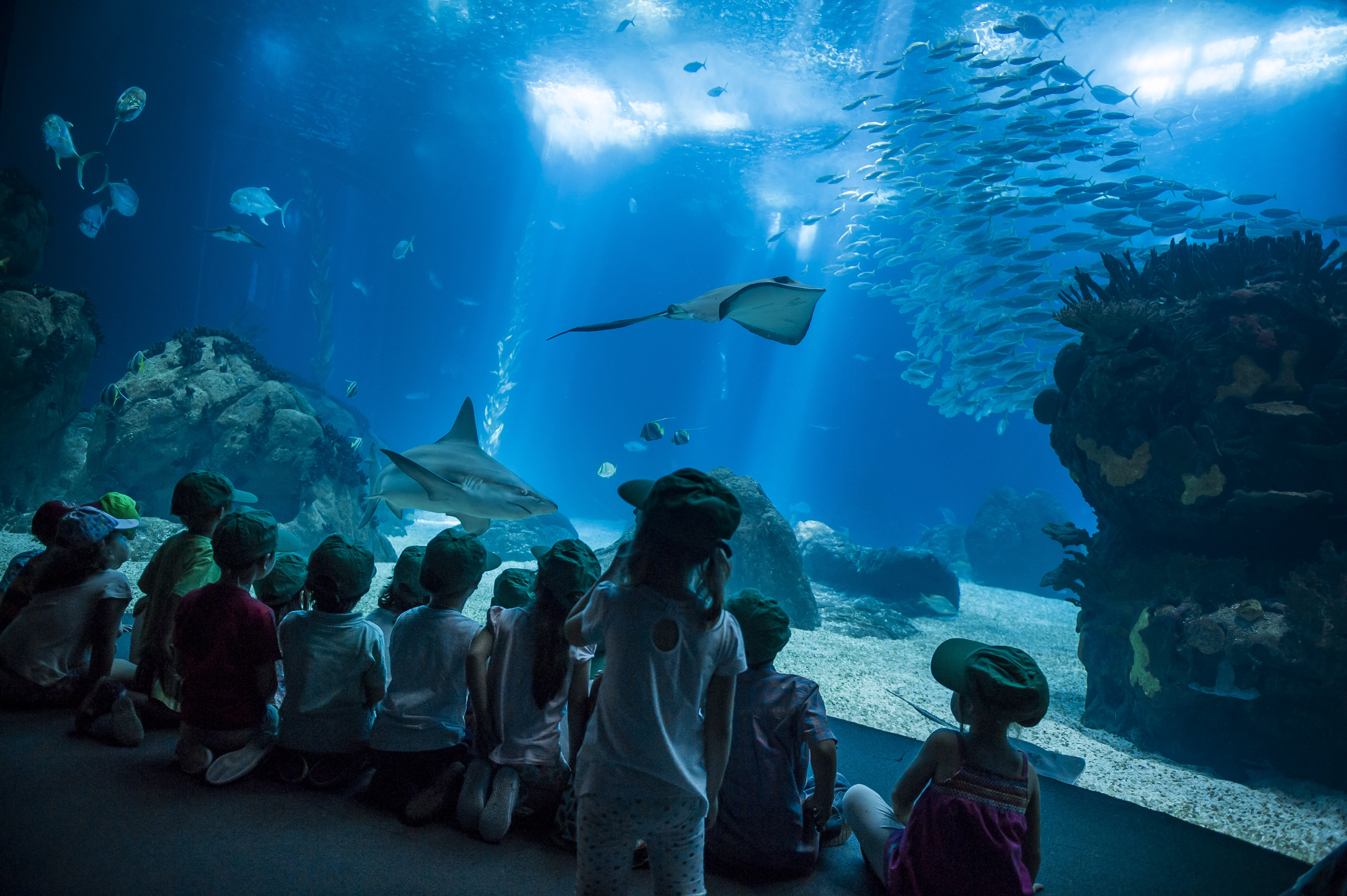
Team buildings and training programmes for corporates
The third type of activities is quite new. In 2022 the Oceanário started to target adults. ‘We felt like we could no longer wait for the next generation to grow up and take charge. Time is running out, we need change now,’ explains Diogo. Therefore, they started organising team buildings and training programmes for corporates, under the name Seastainability. Since the start, they’ve already organised online workshops for companies in Australia, New Zealand, Brazil and Central Europe and many live sessions at the Oceanário itself. These live sessions involve workshops on sustainability, marine litter or climate change, and teambuilding activities with beach cleanups or dolphin watching at the Tagus river. The latter activity is combined with citizen science. Info on the species viewed and the position where they were seen is thus logged into a database. Most of the companies involved have nothing to do with marine science. Often these are IT companies, banks or insurance companies. This way the Oceanário broadens their audience. The goal is not only to change the employees’ vision, but the whole company culture, so that, when new employees start working there, they are embedded in the company’s ocean awareness.
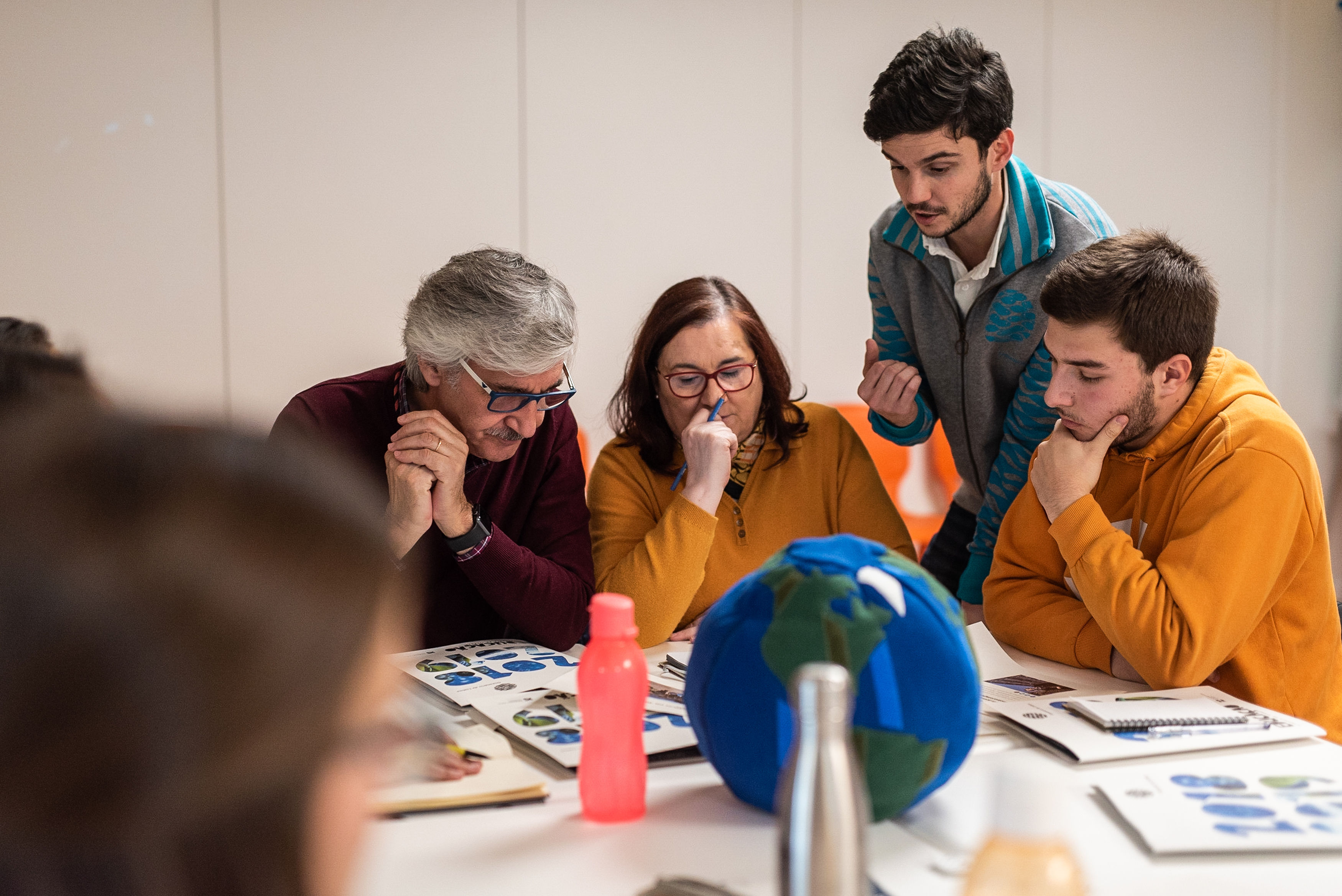
Conservation and research
Apart from education, the Oceanário also has a conservation and research pillar. Currently, they’re involved in research on the sexual reproduction of tropical and cold-water corals. The knowledge they gain can hopefully one day be used for conservation programmes in the wild.
If all depends on Diogo, the Oceanário will keep expanding its reach. He dreams of involving more companies and adults in the future and for people of the countryside to visit more often. Given the costs involved in Portuguese public transportation, the latter will be quite a challenge. However, Diogo doesn’t seem a man to walk away from that.
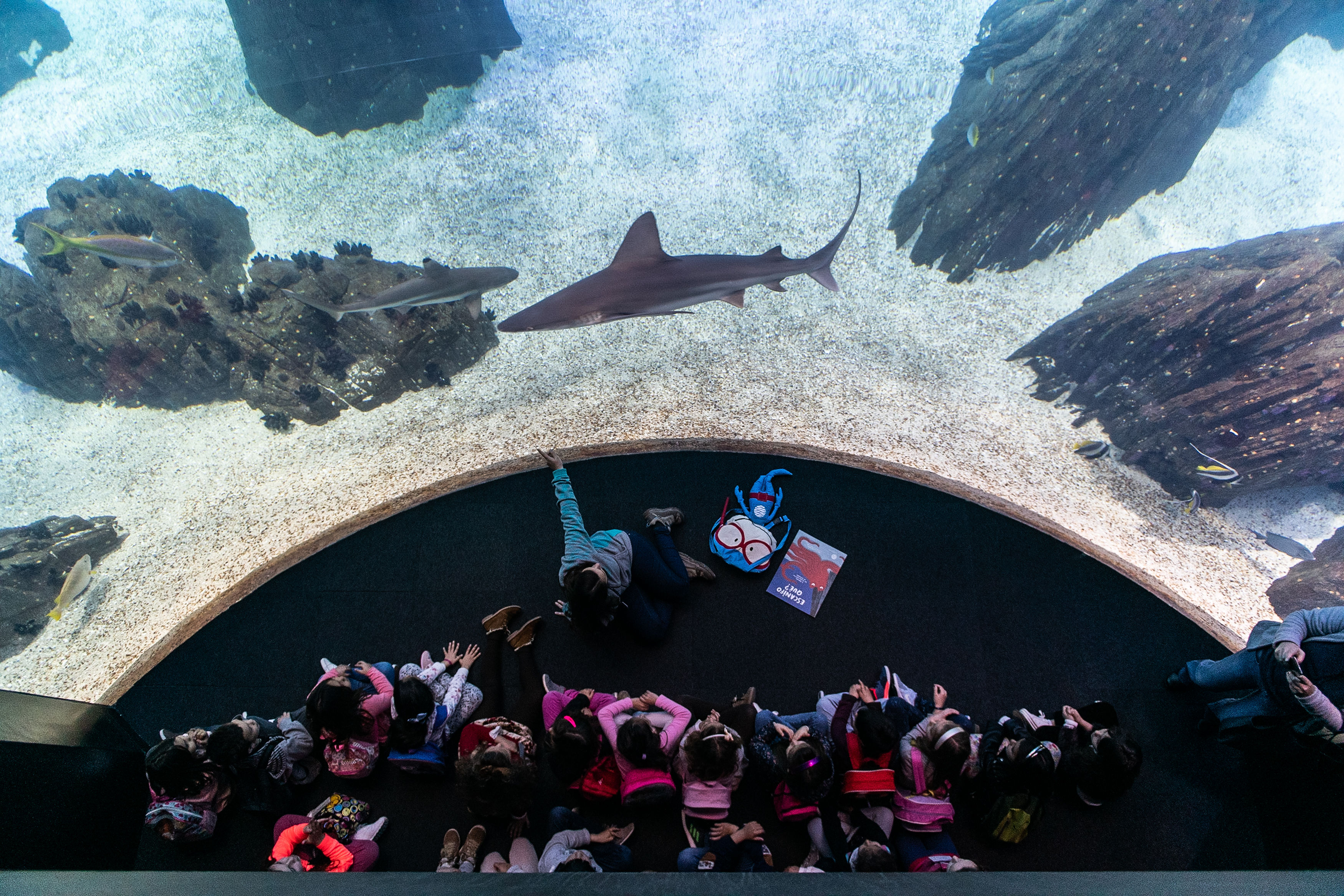
Top tips for Ocean Literacy organisations by Diogo Geraldes
‘Work together with other institutions. Together we’re stronger and able to cover the whole process from initial inspiration to in-depth knowledge.’
‘Make connections through conferences such as those by EMSEA. It’s so important to share your ideas with other people and to expand and spread your knowledge.’
‘Be creative. Organise projects and events in your institution, but also take people outside. Let them be in the wild, in nature. Let them experience the ocean first-handed. ‘
Text by Anke de Sagher for EMSEA
Photos by Diogo Geraldes
More on Oceanário de Lisboa
Website · Facebook · Instagram · YouTube · Pinterest · LinkedIn Oceánario · LinkedIn Diogo Geraldes
Want to join the community? Find out how to become an EMSEA member!
